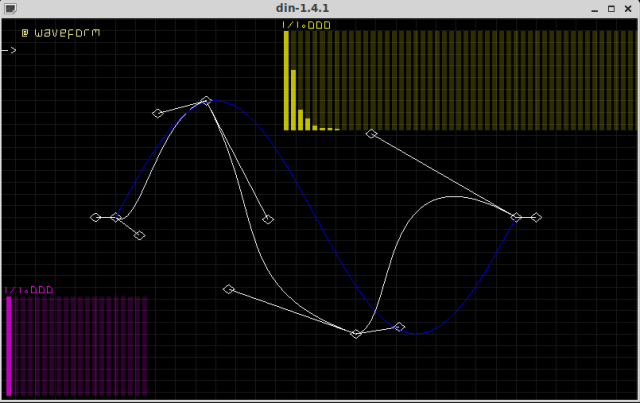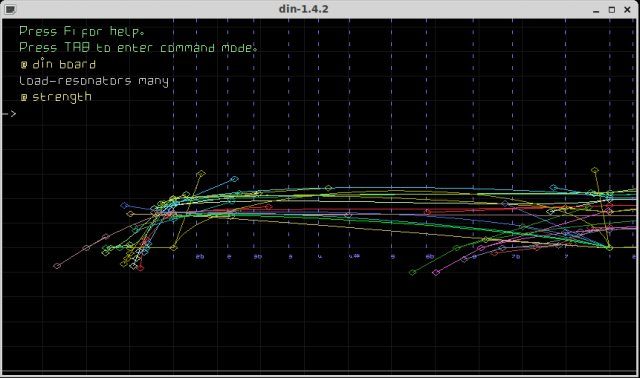“din is noise” is a newly-updated “tone board,” making the rectangular plane of its screen into a field of sound you can transform. The video above just begins to show some of what it can do. Pixels can be tones, transformed onscreen. A resonator editor uses Bezier curves to edit sounds across octaves. Each resonator, in turn, can be edited with yet more Bezier curves. Put them together into the drone editor (the bit you see in the video), and you can create vast, sculpted soundscapes from series of rectangles dragged around between octaves.
It’s all free, and it’s all doable for your mouse – a Linux exclusive that might convince you to dual boot, or take a second look at that netbook.
The results here tend toward the ambient, but if you’d like to tap your toe a bit to what you make, there’s already a stereo gate effect, so knock yourself out. And timbrally, you can use any waveform.
This isn’t just a sound toy, either; you can use MIDI, OSC, and …IRC chat?

More tutorial videos after the jump, because I really don’t get tired of watching this thing.
That said, watch for about halfway through the video at top for things to start to get interesting. Initially, it’s just some sine waves. “Yeah, whatever… another…” You skip ahead in the transport. Then big clusters of resonators start moving around, which should make at least a few sound designers say, “Hmmm….,” an evil grin appearing in the corner of their mouth.
For fans of similar concepts (MetaSynth springs to mind), I think you’ll like this approach, especially in a world of fake knobs. This is something that actually makes sense for the mouse, and makes me hope we see more Linux tablets soon.
Download source or 32-bit Ubuntu deb.
Don’t miss the awesome about page. “This is nothing new. / Some old men did it in the 60s! / Punched numbers into cards!”

“Modulation? / Bezier on Carrier and Modulator. / Eat that Chowning.”
Thanks to Ryan Dean for the tip!
(PS, no, I’m not personally calling Linux GNU/Linux. I understand why people do. But average people use short names. And the value of GNU is such an integral part of what Linux is — and other OSes, too, by the way, cough, Mac OS — that I think we can celebrate GNU without saying a clunky name. But if you do, carry on…)